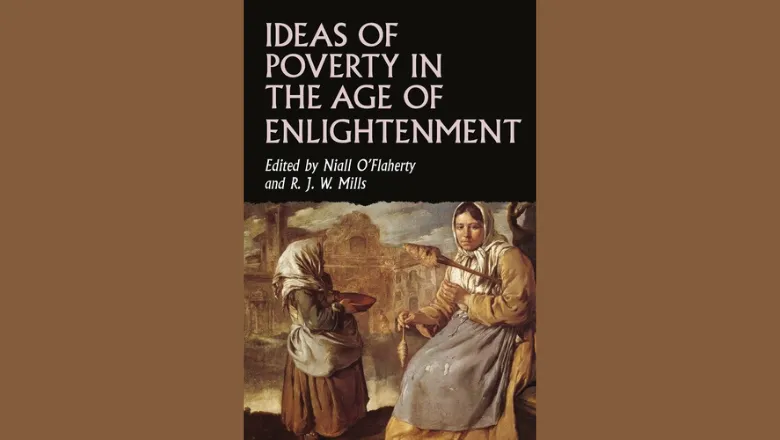Although poverty in the eighteenth century has long been an object of focus for social historians, it has figured only marginally in the intellectual history of the period. This is because it has been assumed that the existence of poverty was rarely problematized before the transformative decade of the 1790s. Yet because the theme of poverty played important roles in many critical issues in European history, it was central to some of the key debates in Enlightenment political thought throughout the period, including the controversies about sovereignty and representation, public and private charity, as well as questions relating to crime and punishment.
Dr Niall O'Flaherty, Senior Lecturer in the History of European Political Thought
17 April 2025
How poverty was understood by eighteenth-century thinkers
Dr Niall O'Flaherty's new book questions why and how many governments and academics began to address poverty as a social problem.

Ideas of Poverty in the Age of Enlightenment (Manchester University Press, 2025), edited by Niall O’Flaherty and Robin Mills is collection of essays examining the ways in which poverty was thought of in the social, political, and religious discourses of eighteenth-century Europe and North America. It brings together experts with a wide range of expertise to offer discussions of how eighteenth-century thinkers thought about the poor.
The book also asks the question of why and how many governments and 'men of letters' began to address poverty as a social problem in the 1790s. It asks how far the drive to reduce or eliminate want was already underway before the French Revolution.

